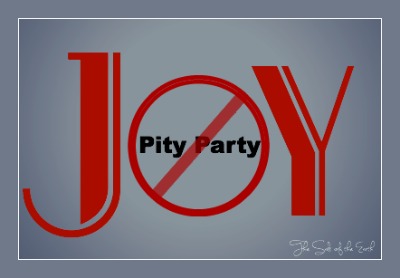The flesh and the Spirit diametrically oppose one another. The flesh lusts against the Spirit and the Spirit lusts against the flesh. The flesh and the Spirit don’t go together and will never go together. Ngakho-ke, a person sows in the flesh or a person sows in the Spirit and what a person reaps shall be the result in what a person has sown; the Spirit or the flesh. Because what you sow you will reap. What does the Bible say about sowing and reaping?
The works of the flesh
For they that are after the flesh do mind the things of the flesh; but they that are after the Spirit the things of the Spirit. For to be carnally minded is death; but to be spiritually minded is life and peace. Because the carnal mind is enmity against God: for it is not subject to the law of God, neither indeed can be. So then they that are in the flesh cannot please God (AmaRoma 8:5-8)
A carnal person is carnally minded and walks after the flesh. A carnal person is led by the flesh and does the works of the flesh. These works of the flesh originate from the sinful nature of the flesh and go against the will of God. Because the flesh won’t submit to God and shall never be subject to God and His commandments. Ngakho-ke, those, who are the indalo endala and are in the flesh can’t please God.
The works of the flesh, which originate from the evil nature are a.o:
- Ukuphinga (asexual relationship between a married person and a person who is not his or her spouse)
- Ubufebe (harlotry, sexual uncleanness including adultery, isehlukaniso, incest, nonmarital sexual relations, ubungqingili)
- Uncleanness (physically or morally: -ukungcola, ritually impure)
- Inordinate affection (properly suffering, (inordinate) affection, inkanuko)
- Evil concupiscence (evil/wicked desire or lust)
- Ukuhaha (fraudulence, extortion:-covetous practices, greediness, having a craving for possession)
- Anger (violent passion, ulaka, indignation, vengeance)
- Wrath (fierceness, indignation)
- Malice (naughtiness, evil, ububi)
- Blasphemy (vilification (especially against God), railing, evil speaking)
- Filthy communication (vile conversation, cursing)
- Lying (utter an untruth or attempt to deceive by falsehood, falsely, lie)
- Lasciviousness (filled with or showing sexual desire)
- Idolatry (worship of idols, immoderate attachment or devotion to something)
- Witchcraft (use of sorcery or magic, use of spells and the invocation of spirits, communication with the devil or with a familiar, an irresistible influence or fascination)
- Hatred (prejudiced hostility or animosity, a reason for opposition, enmity)
- Variance (of uncertain affinity; a quarrel, contention, debate, ingxabano)
- Emulations (envy, fervent mind, indignation, jealousy, zeal)
- Strife (an act of contention, exertion or contention for superiority)
- Seditions (division, incitement of resistance to or insurrection against lawful authority, rebel against the authority of a state)
- Heresies (sect, belief or opinion contrary to orthodox religious doctrine (especially Christianity), a belief or opinion that does not agree with the official belief or opinion of a particular religion)
- Envyings (jealousy, the feeling of wanting to have what someone else has, A feeling of discontented or resentful longing aroused by someone else’s possessions)
- Murders (slaughter, to kill, to spoil or ruin, to defeat an opponent very badly)
- Drunkenness(intoxication, the state of being drunk)
- Revellings (rioting, a carousel, enjoying oneself in a lively and noisy way, especially with drinking and dancing)
Labo, who do the works of the flesh, shall not inherit the Kingdom of God
Now the works of the flesh are manifest, which are these; ukuphinga, ubufebe, ukungcola, ukuxega, ukukhonza izithombe, ubuthakathi, inzondo, ukwehluka, ukulingisa, ulaka, ingxabano, iziyaluyalu, amambuka, umona, ukubulala, ukudakwa, ukuxokozela, and such like: of the which I tell you before, as I have also told you in time past, that they which do such things shall not inherit the Kingdom of God (KwabaseGalathiya 5:19-21)
Know ye not that the unrighteous shall not inherit the kingdom of God? Be not deceived: neither fornicators, nor idolaters, nor adulterers, nor effeminate, nor abusers of themselves with mankind, Nor thieves, nor covetous, nor drunkards, nor revilers, nor extortioners, shall inherit the kingdom of God (1 AbaseKorinte 6:9-10).
Lithi iZwi, that those, who do the works of the flesh, shall not inherit the Kingdom of God.
Ngakho-ke, if in a church these things happen among Christians, including the leaders of the church, it proves that the church (the assembly of believers) is carnal and belongs to the world (umbuso wobumnyama) and is not spiritual and doesn’t belong to God and His Kingdom.
The building and interior of the church may look beautiful and the neon lightning with dynamic light effects and the music may influence the visitors in such a manner that it creates an experience, and elevates the mood and evokes pleasant feelings and emotions, and causes goosebumps, but all these things don’t prove that the church is spiritual and that God’s Spirit is present.
On the contrary, it only proves that the church is carnal and relies upon audiovisual technology, and is led by her senses, imizwa, and emotions. But God is Spirit and not a feeling and an experience.
If a person goes to a concert or a club, the mood of the person shall also be elevated by the neon lighting with dynamic light effects and music. The person shall also experience goosebumps, pleasant feelings, and emotions. But God and His Spirit are not present.
The signs and wonders don’t prove if someone is spiritual
(Supernatural) signs and wonders can also take place in a church, but the signs and wonders don’t prove that a church is spiritual. Especially if people persevere in sin and sin is tolerated in the church.
The signs and wonders can originate from the Spirit but signs and wonders can also originate from the soul, which is controlled by the kingdom of darkness.
Baningi abantu, who don’t know God and are not born again and therefore are unspiritual, but do (okungaphezu kwemvelo) signs and wonders from the flesh, by means of natural technics, izindlela, amasiko, and natural elements and resources and influence of evil spirits. Look at alternative healers, Eastern philosophers, occultists, and what about the sorcerers in Egypt, who could do the same signs as God, to a certain extent (Funda futhi: ‘Ingabe kufanele uzalwe ngokusha ukuze uhambe ngamandla angaphezu kwawemvelo?’ And ‘A technical faith')
What is the fruit of the Spirit?
Ngakho-ke akusekho ukulahlwa kwabakuKristu Jesu, abangahambi ngokwenyama, kodwa ngoMoya. Ngokuba umthetho kaMoya wokuphila kuKristu Jesu ungikhululile emthethweni wesono nokufa. Ngoba lokho umthetho owawungakwazi ukukwenza, ngoba lalibuthakathaka ngenyama, God sending His own Son in the likeness of sinful flesh, langesono, walahla isono enyameni: Ukuze ukulunga komthetho kugcwaliseke kithi, abangahambi ngokwenyama, kodwa ngoMoya (AmaRoma 8:1-4)
But ye are not in the flesh, but in the Spirit, if so be that the Spirit of God dwell in you. Now if any man have not the Spirit of Christ, he is none of His. Futhi uma uKristu ekini, umzimba ufile ngenxa yesono; kodwa uMoya ungukuphila ngenxa yokulunga. But if the Spirit of Him that raised up Jesus from the dead dwell in you, He that raised up Christ from the dead shall also quicken your mortal bodies by His Spirit that dwelleth in you (AmaRoma 8:9-11)
Labo, who have become a new creation in Christ and have the Spirit of God shall no longer be servants of the sinful nature of the flesh and serve the flesh, but they are servants of the Spirit. They have received the Spirit of God and walk after the Spirit and shall bear the fruit of Spirit, which is:
- Uthando (Godly love and not worldly love)
- Joy
- Ukuthula
- Longsuffering
- Gentleness
- Goodness
- Ukukholwa (faithful)
- Meekness
- Temperance (self-control)
Ofcourse there are people, who are not born again and seem loving, gentle, longsuffering, meek, faithful, joyful, and peaceful. But the difference between those, who are carnal and those who are spiritual is, that the people, who are carnal are led by the flesh and not by the Spirit.
Lokhu kusho, that as long as the circumstances and situations go according to their will and as long as the people treat them according to their will, then everything is fine. But as soon as something changes and the circumstances and situations don’t go according to their will or as planned and the people don’t do what they want or don’t do what they expected them to do or if they experience resistance and persecution, then their behavior changes and a whole bunch of other characteristics appear.
But the fruit of the Spirit, which originate from the Spirit and the Godly nature of the new man is permanent and is not dependent upon natural circumstances, situations, surroundings, and people. The new man bears the fruit of the Spirit at all times (Funda futhi: ‘Isithelo sikaMoya‘)
What you sow you will reap
Ngakho-ke, bazalwane, we are debtors, not to the flesh, to live after the flesh. Ngokuba uma niphila ngokwenyama, niyakufa: kepha uma nibulala imisebenzi yomzimba ngoMoya, niyakuphila (AmaRoma 8:12-13)
Labo, who by faith and regeneration belong to Christ and have become a indalo entsha are not led by the evil sinful nature, elikhona enyameni, and don’t do those things, which go against the will of God.
They don’t listen to the flesh and the lusts and desires of the flesh and don’t do the works of the flesh, since they have crucified their flesh and its lusts and desires in Christ (Funda futhi: ‘Following Jesus will cost you everything‘ and ‘Inqubo ebuhlungu eyaziwa ngokuthi ukufa‘ .
If you sow in the flesh you shall reap corruption
As long as a person remains the old man and walks after the flesh, the person shall keep doing the works of the flesh and remain a slave of sin. The old man shall sow to his flesh and shall of the flesh reap corruption.
Ikhehla, ohamba ngokwenyama, shall not please God with his works, but shall grieve God.
If you sow in the Spirit you shall reap life everlasting
Ngoba bonke abaholwa nguMoya kaNkulunkulu, bangamadodana kaNkulunkulu. For ye have not received the spirit of bondage again to fear; but ye have received the Spirit of adoption, whereby we cry, Abba, Father. The Spirit itself beareth witness with our spirit, that we are the children of God: And if children, then heirs; heirs of God, and joint-heirs with Christ; if so be that we suffer with Him, that we may be also glorified together (AmaRoma 8:14-17)
Kodwa labo, I-WHO thanda uNkulunkulu and have become a new creation shall keep His commandments and walk in His will after the Spirit in obedience to the Word and shall sow to the Spirit. They shall bear the fruit of the Spirit and shall reap life everlasting.
‘Yiba usawoti womhlaba’
Umthombo: Strong’s concordance, Oxford dictionary, Merriam-Webster dictionary



